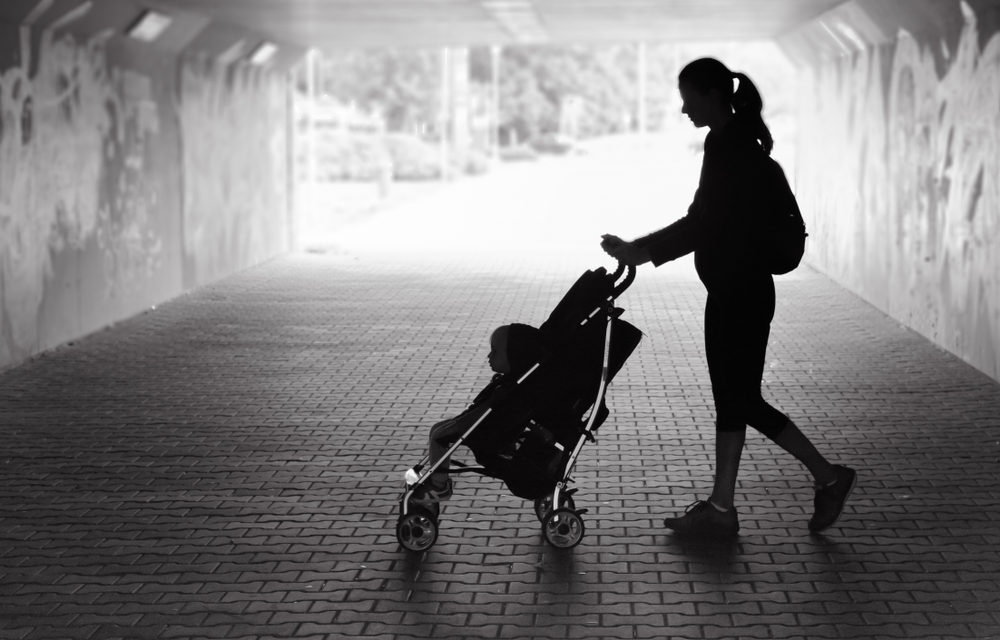
As research on loneliness across the lifespan gains momentum and enters mainstream discourse, the topic of perinatal loneliness continues to be largely neglected. Existing research investigating perinatal loneliness usually has a broader focus on another phenomenon of interest (e.g., postpartum depression, adolescent pregnancy). Quantitative studies typically explore perinatal loneliness as a co-variate related to their research focus. Alternatively, in qualitative studies, perinatal loneliness emerges from participants as a topic important to them and relevant to the broader phenomenon of research interest (Kent-Marvick et al., 2021).
When perinatal loneliness has been the focus of research, loneliness has often been studied deductively, using the theoretical foundation of Weiss’s (1973) social loneliness (i.e., a quantitative deficiency in the number of social contacts) and emotional loneliness (i.e., a subjective deficiency in the desired types of social interactions). For an example of this type of study, see the longitudinal investigation of mothers’ and fathers’ loneliness over time by Junttila et al. (2015). While such investigations are invaluable to our broad understanding of how loneliness changes over time and is related to childhood outcomes, a dearth of inductive studies exploring the nature and mechanisms of perinatal loneliness stunts our ability to leverage our knowledge of perinatal loneliness so as to help parents.
The qualitative study by Taylor et al. (2021) provides a foundation for the type of inductive study needed to begin the conceptual delineation of perinatal loneliness. Their study focused on the role of isolation and loneliness in women diagnosed with perinatal depression, brilliantly drawing upon intersectionality theory to help illustrate how multiple intersecting layers of race, class, age, partnered status, etc. contributed to and compounded their participants’ experiences of distress, loneliness, and even alienation.
To my knowledge, the Taylor et al. (2021) study is the only qualitative study directly targeting how loneliness features in perinatal depression, as opposed to the phenomenon emerging from participant interviews during qualitative inquiry. Moreover, the researchers did not make assumptions about the nature of perinatal loneliness and instead sought to explore the phenomenon inductively, allowing the nature of their participants’ perinatal loneliness to reveal itself.

Psychological distress is often experienced during the perinatal period, however perinatal loneliness continues to be largely neglected as an area of research.
Methods
Using purposive sampling, 14 English-speaking women diagnosed with perinatal depression from varying backgrounds (i.e., racial, socioeconomic, mental-health service use) were selected for participation in semi-structured interviews. Of note and adding to the rigour of the study, the interview guide was developed in collaboration with a participatory group of people experienced with perinatal mental health challenges. Additionally, it should be noted that the women were not directly asked about isolation and loneliness during their interviews, but rather were asked to elaborate on these experiences as they emerged during discussion of women’s perinatal mental health support needs.
Interviews were coded and analysed using a thematic analysis approach to identify the central themes of isolation and loneliness within women’s experiences of perinatal depression. Again, the participatory group was consulted at each phase of the analysis process.
Results
Two broad themes emerged from participants’ experiences of isolation and loneliness in perinatal depression: “Dislocated Self,” and “Dislocated Relationships.” Within these two broad themes, several subthemes were identified including:
Dislocated Self
What Have I Become?
Being isolated at home with their babies, while also feeling separate from aspects of their previous social and professional roles, contributed to women’s feelings of depression. These feelings of isolation from aspects of their pre-baby lives ranged widely in intensity. In one case, a woman described her struggle with the transition from professional competency to lack of confidence in her role as a mother at home. Another described feeling as though “you end up losing your whole life in one big blow” (Taylor et al., 2021, p. 6).
Stigma, Shame and the Isolating Narrative of the Good/Bad Mother
Women shared that they often felt as though they weren’t measuring up to the cultural narrative of the good and effortless mother. Not measuring up led to feelings of inadequacy and loneliness, which in turn drove feelings of separateness that made it difficult for these women to connect with others. The women found comfort when they were able to establish connections based on shared experiences.
Dislocated Relationships
Difficulties in Family Relationships and Bonds
Here, turmoil experienced in intimate partner relationships contributed to women feeling less connected in these relationships. Women linked these experiences to their feelings of depression.
Nobody to Care for Me
Women often felt as though they bore the primary role of infant caregiver alone and without adequate support from their network.
Going it Alone
Motherhood sometimes felt like a battle faced alone. This was compounded for women who did not feel that motherhood came naturally to them or for mothers who did not feel they matched the cultural standard of the “good mother”.
While mothers from all socioeconomic and racial backgrounds shared experiences across themes, the researchers’ use of intersectionality perspective helped to illustrate how mothers experiencing marginalisation felt these ordeals more strikingly.

Women who felt their intimate partners were not supportive also expressed a sense of isolation which contributed to feelings of depression.
Conclusions
The results of this study illustrate how feelings of isolation and loneliness (even when not explicitly called out) are embedded in the common psychosocial stressors experienced during the perinatal period. This is important to our public health and health services efforts because understanding the mechanisms and nature of perinatal loneliness will help us to understand how to support parents better. In this way, knowledge of perinatal loneliness can be leveraged to help parents improve their mental and physical health, and therefore, help parents and their children to live healthier, happier lives.

In this study, intersectionality theory illustrates how layers of women’s identities may contribute to more profound experiences of marginalisation, isolation, and loneliness.
Strengths and limitations
Strengths of this study include the use of a participatory approach which involved people with experiences of perinatal mental health challenges in all aspects of study development, including refinement of the interview guide and data analysis. Additionally, the comprehensive description of the analysis process contributes to future study reproducibility. The study’s sample of 14 participants was adequate for a qualitative study.
A limitation of the study was that women were not explicitly asked about their feelings of isolation and loneliness.

A great strength of this qualitative study is the use of a participatory approach which involved people with experiences of perinatal mental health challenges in all aspects of the study development.
Implications for practice
- Taylor et al. (2021) provides excellent suggestions for intervening and supporting parents better, including the facilitation of building new social connections based on shared experiences. Note that the researchers aptly point out that this must be approached with cultural and psychosocial sensitivity to women’s preferences. Otherwise, new relationships may contribute to feelings of isolation and loneliness.
- Additionally, the authors share that intervention at the intimate-partner level may be beneficial.
- Helping parents to have more realistic expectations about parenthood, and specifically to recognise the shortcomings of cultural narratives about parenting, may make the transition into parenthood easier.

Taylor et al. (2021) provides excellent suggestions for intervening and supporting parents better, including the facilitation of building new social connections based on shared experiences.
Statement of interests
None.
Links
Primary paper
Taylor, B. L., Howard, L. M., Jackson, K., Johnson, S., Mantovani, N., Nath, S., Sokolova, A. Y., & Sweeney, A. (2021). Mums Alone: Exploring the Role of Isolation and Loneliness in the Narratives of Women Diagnosed with Perinatal Depression. Journal of clinical medicine, 10(11), 2271.
Other references
Juntilla, N.,, Ahlqvist-Björkroth, S., Aromaa, M., Rautava, P., Piha, J., & Räihä, H. (2015). Intercorrelations and developmental pathways of mothers’ and fathers’ loneliness during pregnancy, infancy, and toddlerhood—STEPS study. Scandinavian Journal of Psychology, 56(5), 482-488.
Kent-Marvick, J., Simonsen, S. E., Pentecost, R., Taylor, E., & McFarland, M. M. (2021). Loneliness in pregnant and postpartum people and parents of children aged five years or younger: A scoping review. [Unpublished manuscript]. College of Nursing, University of Utah.
Weiss, R. S. (1973). Loneliness: The experience of emotional and social isolation. The MIT Press.
Photo credits
- Photo by Marcos Paulo Prado on Unsplash
- Photo by Camila Cordeiro on Unsplash
- Photo by Alex Iby on Unsplash
- Photo by Marcos Luiz Photograph on Unsplash
- Photo by freestocks on Unsplash
- Photo by Sasha Freemind on Unsplash

An informative article on an important topic. We too are addressing the challenge of isolation in the perinatal period via our “Creating Perinatal Wellbeing” programme with funding from the National Lottery. Perinatal mental ill-health impacts 1 in 5 women. Exacerbated by the pandemic, perinatal mental ill health currently costs the UK economy £8.1 billion per birth cohort. As the bulk of this cost is related to the later needs of the child, early intervention and support for expecting mums seems a no-brainer.